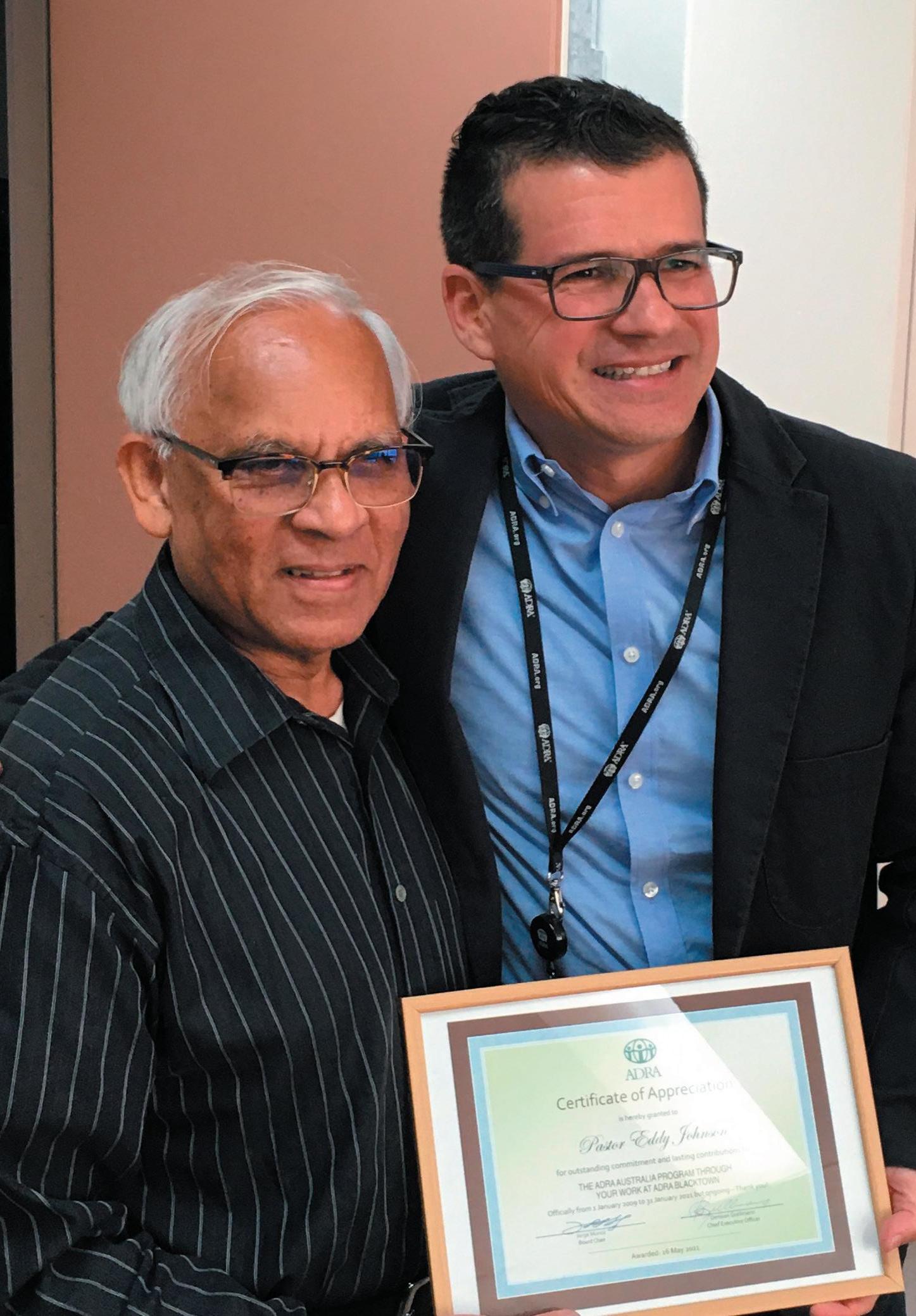
3 minute read
Wellness Influencer Meet
by Christiana Leimena
Almost 160 years ago, at age 36, Ellen White received a literal—and metaphoric—vision on healthful living, which has become the cornerstone of the church’s platform of practical Christianity. Its message addressed the heretofore unrealised link between physical health and the spiritual experience of a person: that God designed the body in a way to enhance our spiritual connection with Him.
The vision revolved around eight areas of health: consumption of only the most nourishing and nutritious foods; exercise; abstaining from harmful substances; maintaining a balance of work and rest; taking a Sabbath day of rest weekly for personal, spiritual and relational healing; feeding the mind with positive thoughts; being adequately hydrated; and enjoying fresh air and sunlight outdoors.
This message was quite different to the accepted and practiced norms of the time, although today her advice would be considered merely common sense, distilled from medical research and advances in education and health promotion in the century since. It was disseminated in lectures, books and magazines around the world. Ellen White was truly the “wellness influencer” of her time!
In contemporary times, a “wellness” industry has developed and is flourishing; the internet and social media platforms are filled with lifestyle influencers—mums and bubs, fitness mentors, diet and weight loss coaches, and alternative healing gurus, all with product for sale, to name but a few. People become “followers” of these gurus. Their large followings derive from smart marketing strategies, and via companies that connect influencers with brands to boost the profile (and sales) of both.

However, while it is pleasing to see such great interest in health wellness and the development of broader attitudes to health and the body, the authenticity of much of the information is lesser of a priority. People rely on the endorsements of other consumers, following an opinion instead of checking the truth behind claims. This many different opinions are not necessarily validated.
SO WHERE DO WE AS A CHURCH FIT INTO THIS WELLNESS INDUSTRY?
In May, some 100 health and wellness experts and exponents, representing 35 Greater Sydney churches, participated in a Health Network Expo, where attendees networked, exercised, and exchanged ideas. Their role as wellness influencers was explored in depth.
Featured in the Heath Network Expo were:
• Booths informing of the latest health programs, ministries and resources
• Cooking demonstrations
• Todd Brodie—cardio program
• TED-style talks—how to be a wellness influencer.
• ELIA Wellness (SPD)—programs and resources for individual and group use, including its new Wellness phone app*
• Jared Madden (ELIA Wellness)—how individuals and churches can be community wellness influencers as wellness hubs
• Camila and Josef Skaf (Sozo)—pop-up health retreat Jöelle Lawrence (Raymond Terrace Mission)— engaging with the community through a health business (stories from his Newstart lifestyle juice shop
• Katie Snyder (Dundas Church)—mental health issues during the pandemic, and the Nedley Depression and Anxiety Recovery Program
• Clare Chan (We Explore Wellness Centre)— wellness ideas and making an enduring influence via select programs.
• Churches (Waitara, Sydney Portuguese, Paramatta, Mountain View)—utilising community groups/clubs as gateways into healing and hope.

Wellness influencers focus on a few specific areas. But our church’s message promotes a whole person health package. Our wellness message isn’t just about what one eats and how much one should exercise, but also about how one thinks, how one relates socially with others. And a core group of church members are playing active roles in being wellness influencers in their community.
“I saw that now we should take special care of the health that God has given us, for our work was not yet done,” wrote that first wellness influencer a century ago. “Our testimony must yet be borne and would have influence” (Selected Messages, Book 3, p. 27). Let’s embrace her vision, living it and connecting with others that they will want to know what we know, thinking creatively as to how we each can share it, influencing our local communities.










